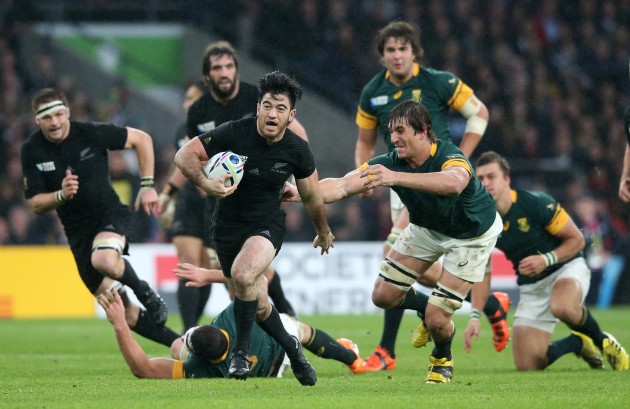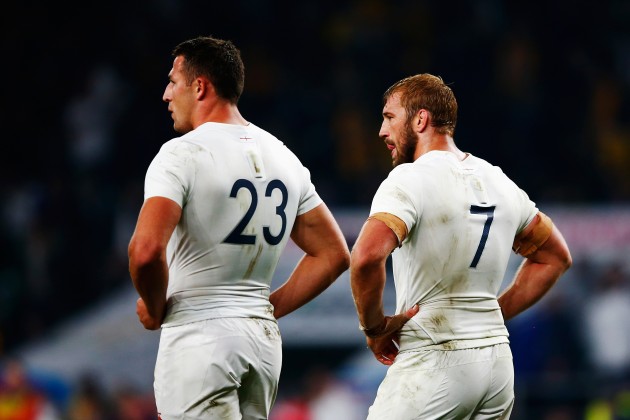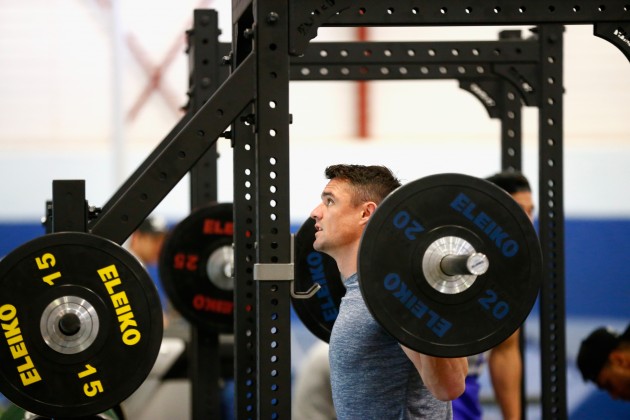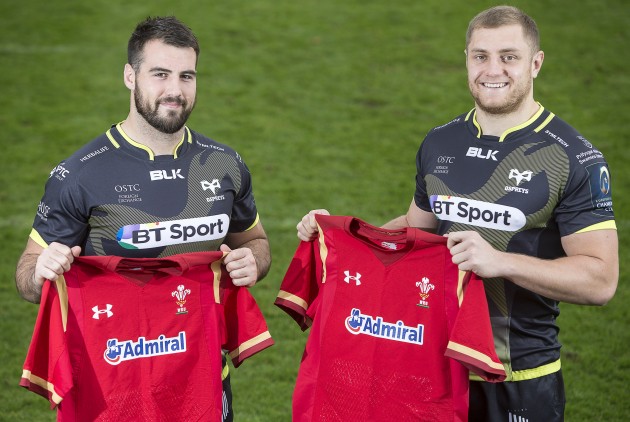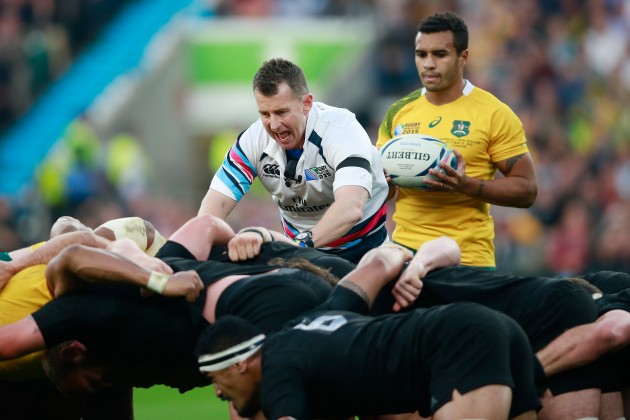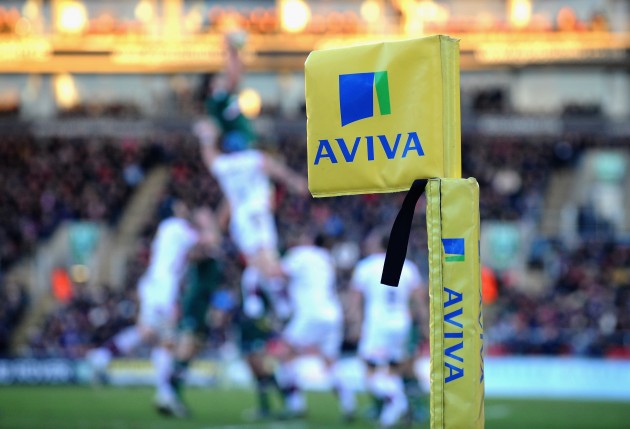Sam Burgess, the salary cap, good news at the Welsh regions and how size is no longer enough in Test rugby are all discussed
Burgess – one bad decision led to dozens more
A single decision dictated the entire outcome of Sam Burgess’ career in union – was he a back or a forward? In hindsight the flip of a coin may have resulted in a better outcome for Burgess, Bath and England. The inability to make that decision has led to a Chernobyl-like fallout in English rugby, with coaches, pundits and players developing nervous ticks at the mere mention of Burgess. The reality is that if Sam Burgess was deemed a backrow forward, a six in all likelihood, then he wouldn’t have gone to the Rugby World Cup. Burgess simply wouldn’t have developed the required knowledge of the breakdown, in just five-odd games there, to oust England’s first choice backrow forwards.
However, the decision to turn him into a centre is where the blame really rests. Without the backing of Bath, Burgess couldn’t have become an international centre whilst he was playing at six for his club. It meant that not only did Burgess have to cope with switching from league to union but had to deal with the quantum differences of playing inside-centre and blindside flanker; in two calamitous five month chunks. Besides lobbing his dumbbells out of the pram and returning prematurely to the NRL, Burgess is largely blameless. However, those in key decision making roles have helped damage multiple careers and the finger pointing will undoubtedly turn into ‘two finger’ pointing when the RFU release its Rugby World Cup review.
Size is no longer enough
As all Rugby World Cups do, the 2015 incarnation tweaked what is required from a test team. Being big is no longer enough. Unlike the previous two World Cups which rewarded massive packs, the ability to secure penalties from set piece, and a 90%+ kicking percentage, 2015 was different. Wonderfully different. The successful teams weren’t ‘gym gorillas’ – the term ‘gym monkeys’ no longer being appropriate given the size of the modern test player. Size is still important, but it is no longer the be all and end all. The ability to move the ball through the 12 and 13 channel has once again become key to winning games.
There was a point in test rugby, five years ago, where wings didn’t score tries and merely chased box kicks like greyhounds running after a furry rugby ball with long ears. But that is no longer the case. This year’s stand out teams and individual performances occurred in squads which were able to efficiently move the ball through the central channels – Japan being a fine example. It is also no coincidence that the All Blacks dominated the World Cup when their forwards are able to handle the ball better than many elite clubs backlines. Put simply, test players need to handle more ball and spend less time pumping tin.
Finally signs of optimism for the Welsh regions
At first glance this premise looks absurd, unless you’re a Scarlets supporter, who have had a magnificent start to the season. But whilst the table makes eye gouging reading for Cardiff Blues, Newport Gwent Dragons and the Ospreys, behind the scenes ‘Kasparov’ type moves are being made that could significantly benefit Welsh rugby over the next five years. Although unconfirmed, the Welsh region’s salary cap looks set to increase by a million per region. Doing some maths, you’d think the reported £33m windfall from Under Armour after they signed a nine-year contract and reported £10m windfall from the Rugby World Cup has helped make these decisions.
As a result, the WRU’s National Dual Contact (NDC) pot may also increase significantly. This follows in the wake of NDCs being signed by Dan Baker, Rory Thornton, James King and Scott Baldwin. There are also suggestions that George North, Leigh Halfpenny and Jon Davies are firmly in the sights of the WRU and Regions. The details are of course yet to be confirmed, but the syphilitic state of Welsh rugby’s finances appears to have finally been given a shot of penicillin that it desperately needs.
We need more exposure to referees, not less
Rugby’s perceived wisdom is that the more anonymous a referee is on the field, the better they have performed. Off the field, referees are also often criticised for having excessive exposure in the media. It seems as though most rugby supporters would be happy for World Rugby to develop a refereeing automaton, jam a whistle in its rubbery mouth and be done with their human counterpart. But the reality is that quite the opposite needs to happen. It’s the only way to resolve the miscommunication that regularly occurs between referee, player and supporter. Like it or not, due to rugby’s unique – and often complex – system of laws every single game is refereed differently.
That’s why the public and media need to have a dialogue with referees to understand exactly what his happening on the pitch. A perfect example being the ‘crooked feed’ at the scrum. Twelve months ago we were told that it would be whistled heavily, to eradicate it from the game. But that clearly is no longer the case and yet no one has told us officially. Interviewing a referee before the game, to understand exactly what he is looking for from the players would be hugely beneficial for the rugby watching public. The players have the opportunity to discuss the game with the referee in the changing rooms, prior to kick off, so why shouldn’t we?
Salary Cap breaches affect everyone
Last month saw the Aviva Premiership teams engage in a brawl, where the weapon of choice was a press release. The upshot was a significant number of clubs stating that they weren’t one of those investigated for salary cap breaches. Whether or not certain clubs decided to flaunt the rules and upgrade their cap to a shiny new crown, may seem like a rather trivial point; but it isn’t. The ramifications of clubs tweaking a salary cap are far reaching and affect the game as a whole, not just England’s elite club competition.
Salary caps are not only a means of creating parity of finances, they also stop the hyperinflation of players’ wages. The hyperinflation of players wages could affect both the Aviva Premiership and the Pro 12; which left unchecked could result in the spectacular wage increases that English football’s Premier League experienced in the late 1990s. The worst case scenario is that salary cap breaches inflate the market to the point that the gap in revenue is passed on to supporters via ticket prices. Rugby needs to avoid this situation at all costs and if salary cap cheats need to be outed, then so be it.
For the latest Rugby World subscription offers, click here.





